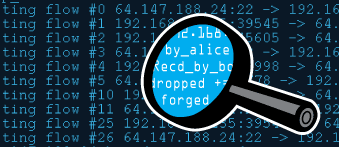Slow Internet: Glitch or Malicious Interference?
Is your ISP sabotaging your Internet connection? There's now a simple way to find out

We may earn revenue from the products available on this page and participate in affiliate programs. Learn more ›
The Electronic Frontier Foundation, a rights advocacy group based in San Francisco, released a software program last week that lets you track whether your Internet Service Provider (ISP) is purposefully making your connection run slower. Called Switzerland, the software monitors packet forgery, a technique by which ISPs add overhead to your broadband line. Instead of just slowing down the connection, packet forgeries are like adding potholes to a highway that you — and anyone you connect to — are travelling. Switzerland uses a separate server for monitoring your traffic: it compares the way your traffic looks to the way it should, and alerts you to any discrepancy.
According to Peter Eckersley, an EFF technologist involved with the Switzerland project, there’s just not enough transparency for end-users to know whether a service provider is deliberately tampering with their connection and therefore reducing the value of the service.
“At a technical level, the problem we’re really addressing is that there are no existing tools that make detection and examination of modified traffic easy and automatic, Eckersley told me via email. “There have been some tools released that detect specific kinds of interference — such as modified Web pages or TCP RST spoofing — but nothing that spots arbitrary modifications.”
According to Eckersley, there’s also a misunderstanding about the term “Internet throttling.”
“The word ‘throttling’ has been used to describe the network management undertaken by ISPs such as Comcast and Cox against various programs, including P2P apps like BitTorrent and Gnutella/Limewire,” he says. “But ‘throttling’ isn’t a very accurate description of what Comcast and Cox were doing, because it suggests that the ISP was just slowing down or ‘shaping’ the traffic. What we saw with U.S. cable ISPs was not just the slowing of some communications, but the actual injection of forged packets.”
Switzerland is a free program, published under the open-source GPL license. Whether it might raise enough red flags to cause ISPs to think twice about manhandling their users’ connections is still an unknown.